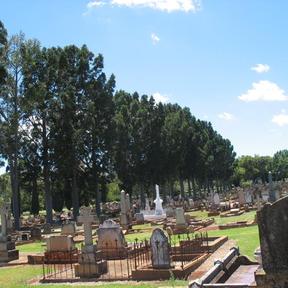Level of Significance
- File
- Local
- Regional
- State
- National
Age (approx)
70yrsTrees
23Diameter
0.08mHeight - 21m


Details
- Outstanding species (Scientific)
- Landscape (Social)
- Landmark (Social)
- Spiritual/Religious (Social)
- Contemporary association (Social)
- Attractive (Aesthetic)
Statement of Significance
The rich, fertile soil, temperate climate and the interest of many of its citizens in things botanical, has resulted in Toowoomba Region’s ability to grow a wide range of indigenous and non-indigenous plants. In 1860, the area was the first to hold an Agricultural Show in Queensland – 15 years before Brisbane. Walter Hill, the then Government Botanist and first curator of the Brisbane City Botanic Gardens, travelled to Toowoomba to advise with the design and planning of Queen's Park and street plantings in Toowoomba. He subsequently imported many tree species from Europe, Asia and other parts of the world to be planted there. Hill Street in Toowoomba is named in his honour. The town attracts many visitors in September for its famous Carnival of Flowers, where people come from near and far to enjoy Toowoomba’s many parks and gardens. Since the first registered burial in 1866, the Drayton and Toowoomba Cemetery has been an integral part of Toowoomba’s history. It is one of the earliest surviving public burial grounds in Queensland and contains the graves of pioneers, previous Mayors and other prominent people who shaped Drayton and Toowoomba’s local history. These pines were planted c1955 but are not visible in the 1955 aerial photo. They are plainly visible, with significant shadows, in the 1963 aerial photo. These trees have been included in ‘Toowoomba's Best Trees', a collection prepared in 2014.
The pines make a visual contribution to a place important to the community. As Toowoomba's finest kauri pine avenue, these pines make a considerable aesthetic contribution to this cemetery and contribute significantly to the landscape of the area. They grow in a burial ground that is still in use and therefore has religious and ceremonial importance to the local community. The pines are grand and imposing trees.
The avenue is located to the eastern end of First Avenue.




